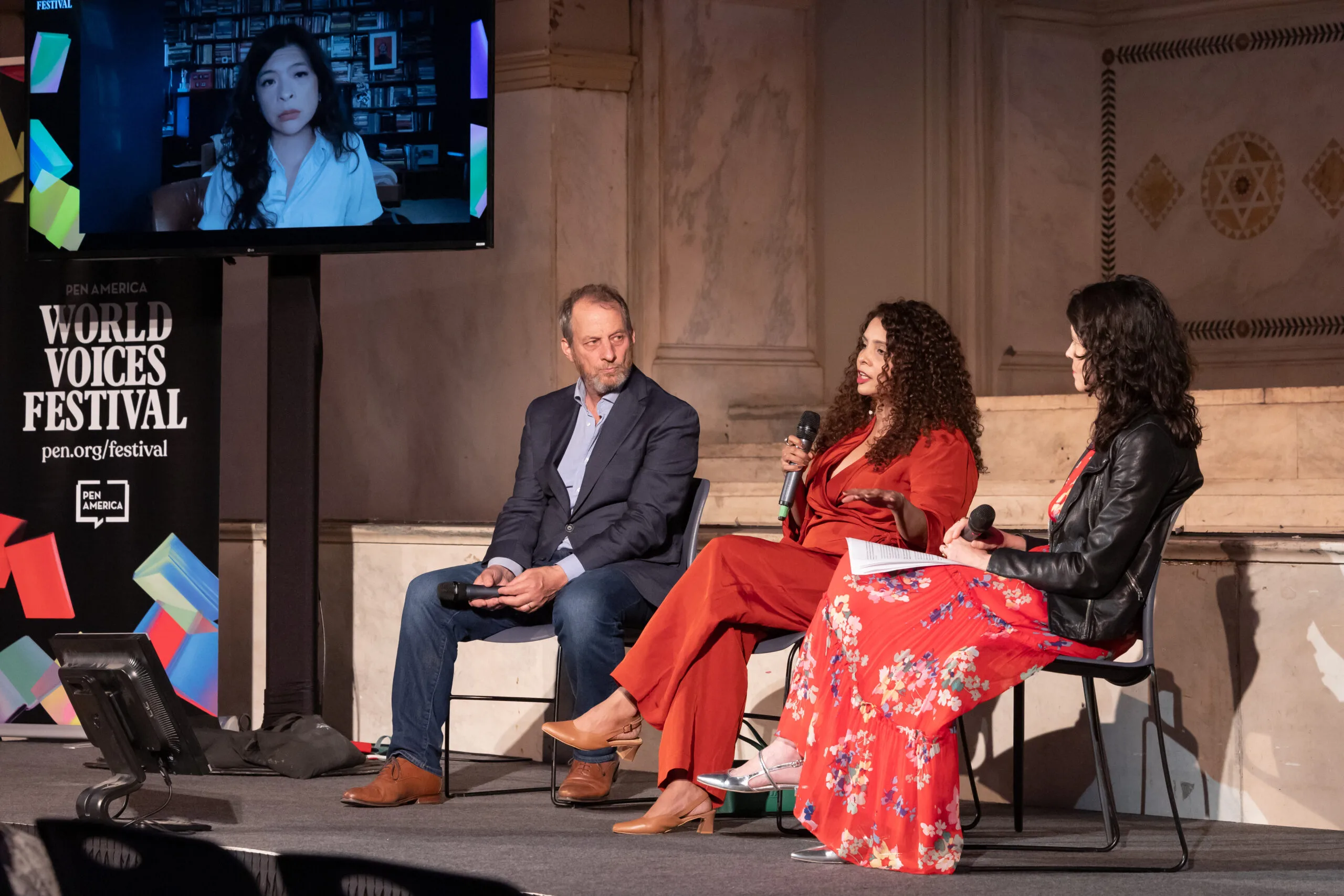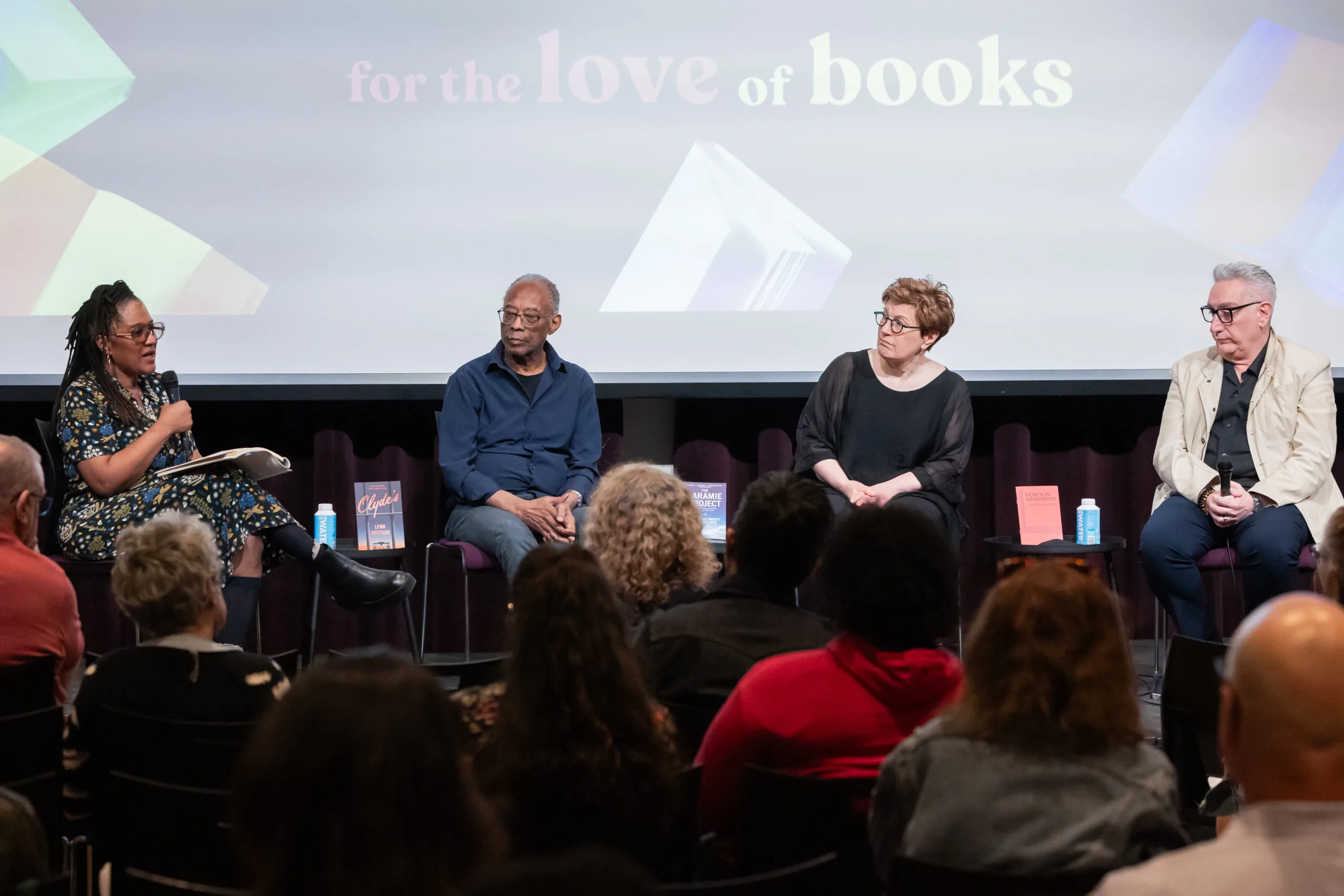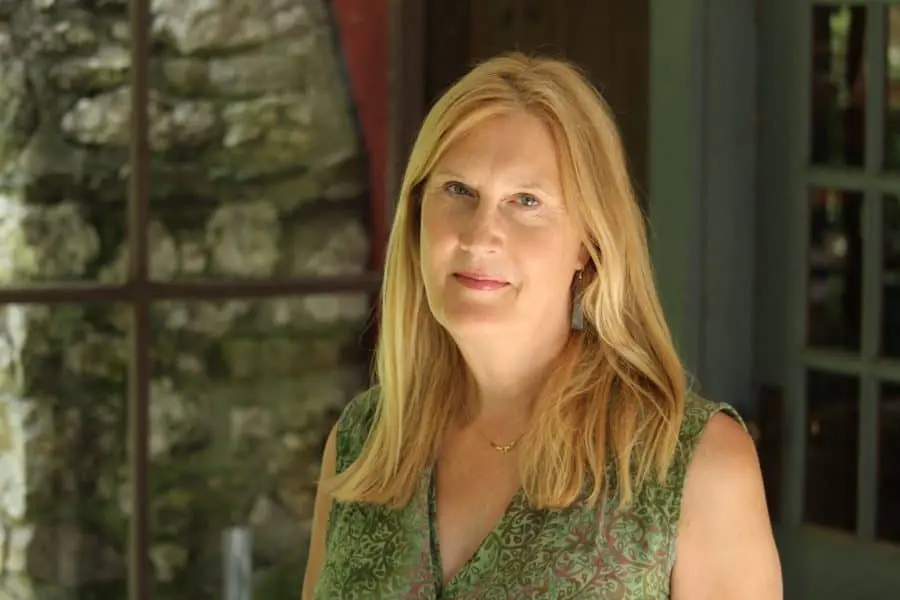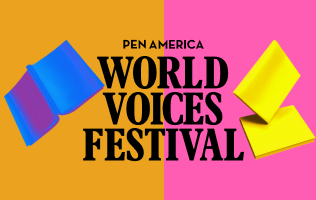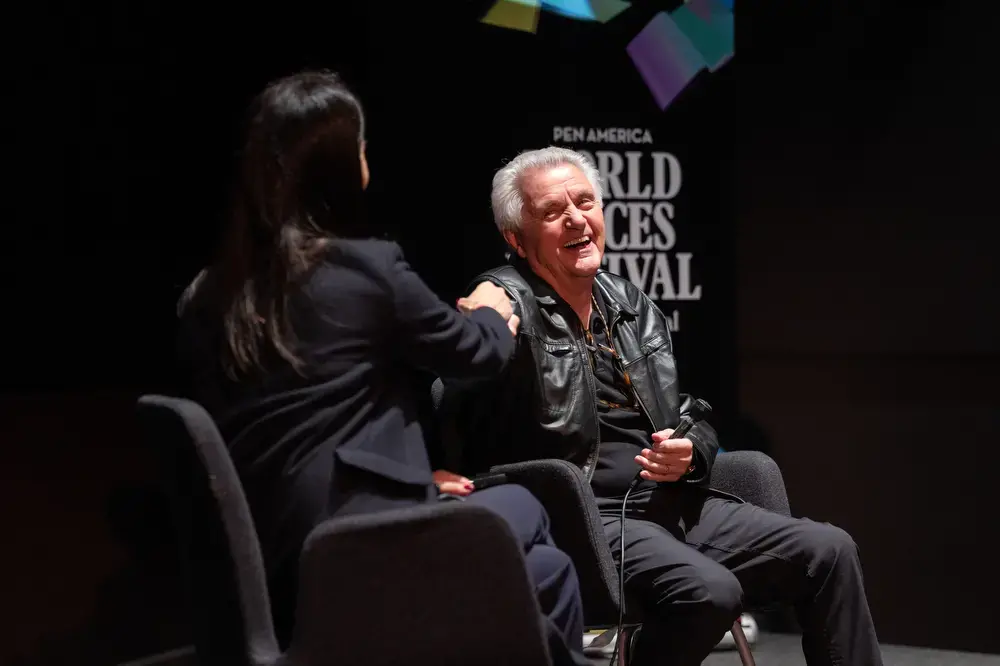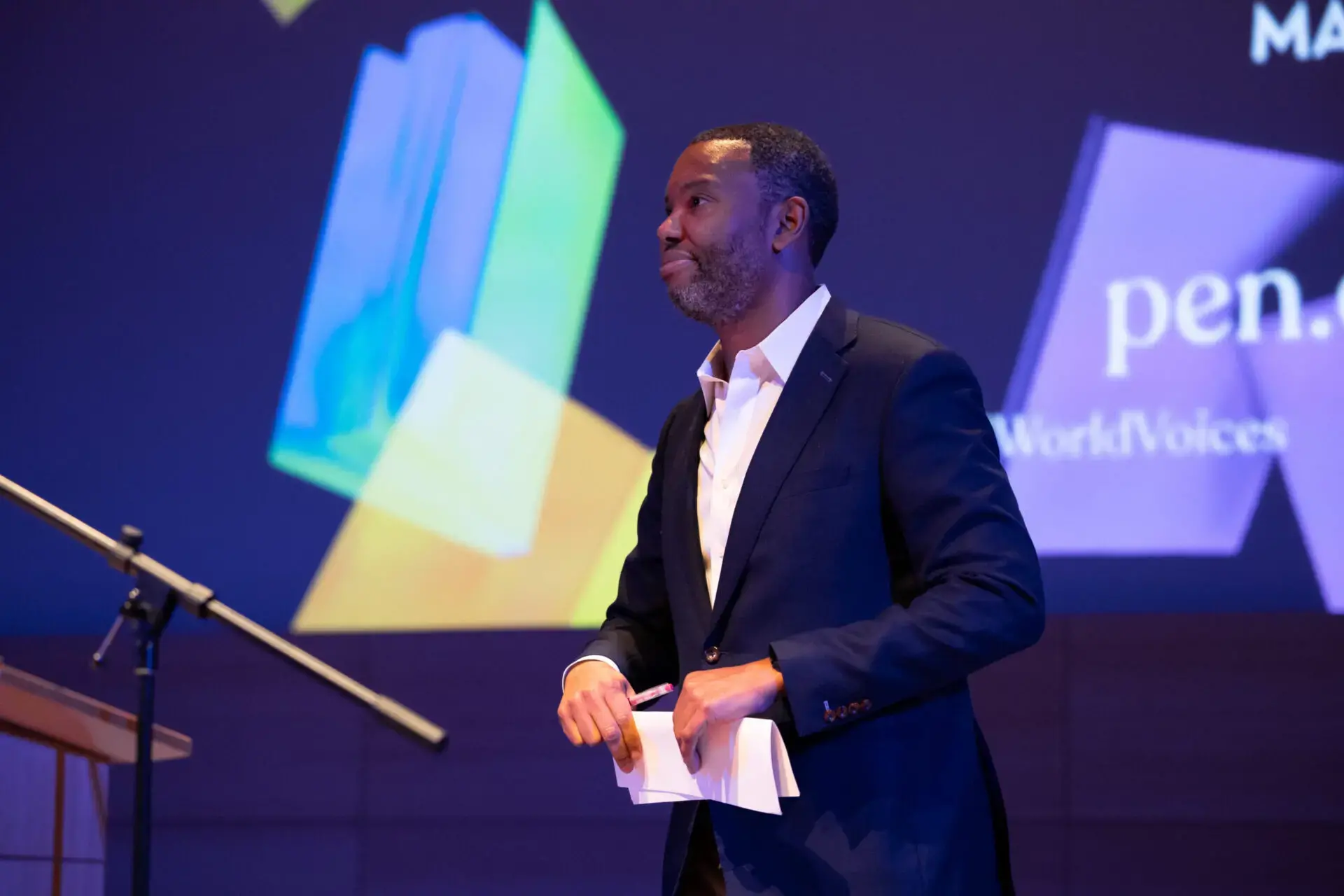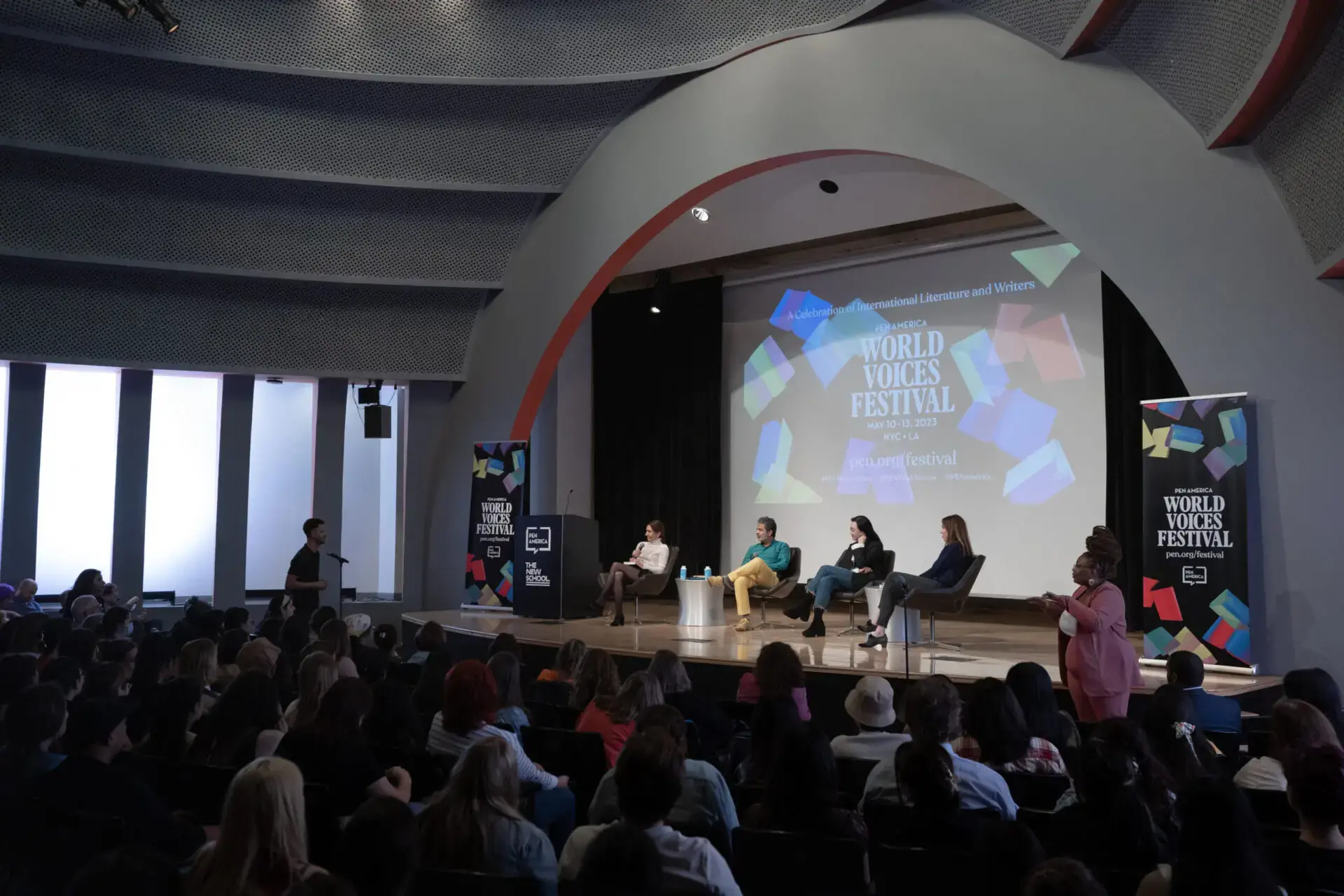
How do storytellers transform personal grief, trauma, and truth into powerful cinema? What does it cost to tell these stories, especially as women in industries that often marginalize their voices? And how can personal narrative become a force for cultural change?
On Thursday, May 1, 2025, the PEN World Voices Festival brought a profound and timely conversation to the WGA Theater in Beverly Hills: Crafting Courage: Women, Film, and the Power of Personal Narrative. The event centered on the transformative power of storytelling, with a special screening of the Oscar-nominated documentary Black Box Diaries, followed by an unforgettable conversation between filmmaker and journalist Shiori Itō and Emmy Award-winning writer, director, and producer Ava DuVernay.
On Personal Truth and Risk
Itō, whose Black Box Diaries chronicles her own experience with sexual assault and the struggle for justice in Japan, spoke with vulnerability and clarity about the risks of speaking out. Her film, simultaneously investigative and deeply personal, not only broke silences in Japan but catalyzed a broader global conversation on gender, justice, and media complicity.
“When I started filming, I didn’t know how to talk about it—I didn’t have the language. But by holding the camera, I was able to find my voice. It was like I was filming myself into existence,” Itō shared about her creative process. She described how turning the camera on herself allowed her to slowly reclaim agency over her story, especially in a cultural and linguistic context that offered no clear way to express her trauma. Filming became a means of survival and discovery—each frame helping her to articulate emotions long buried. Through this process, she not only found the strength to speak, but also the courage to challenge powerful societal norms that had silenced her and many others.
“When I started filming, I didn’t know how to talk about it—I didn’t have the language. But by holding the camera, I was able to find my voice. It was like I was filming myself into existence.” – Shiori Itō
DuVernay responded with deep solidarity: “When you watch something like Black Box Diaries, you’re not just watching a film—you’re witnessing an act of bravery,” she said. DuVernay, no stranger to crafting narratives rooted in racial justice and collective memory, emphasized the importance of centering those who live the stories being told. “Storytelling is power. And power makes people uncomfortable. But it’s also how we change the world.”
On Industry Barriers and Artistic Freedom
The conversation also addressed the systemic barriers women continue to face in filmmaking—from censorship and funding gaps to gatekeeping and cultural erasure. “We still have to fight to tell our stories on our terms,” DuVernay noted. “We still have to justify our truth.”
Itō added: “For many women, telling the truth isn’t just difficult. It’s dangerous.” And yet, both artists agreed: silence is not an option.
“Storytelling is power. And power makes people uncomfortable. But it’s also how we change the world.” – Ava DuVernay
On Patriotism, Truth, and Speaking to Power
During the Q&A, an audience member asked a powerful question: “I feel like what you both have in common is you’re making films that shed light on injustice in countries that carry this illusion of greatness. What is it like to try to expose that underbelly — in America, the so-called land of the free, and in Japan, a top travel destination? What is your relationship with the truth, and what is it like to shine a light on that darkness?”
Itō reflected on Japan’s reputation for order and politeness, and how that same cultural discipline can silence dissent. “There is a deep beauty in Japan and I love my country—there are so many incredible things about it” she said, “but also an overwhelming pressure to conform. We grow up in a culture where peer pressure is so strong that it’s hard to say ‘no’ — especially as women. Our language even makes it difficult. When I was assaulted, I kept trying to be polite. It was only when I switched to English that I could say what I really felt.” She added that she now encourages young women to practice using their voices assertively. “Sometimes my friends and I get together and just practice saying, ‘No,’ or even, ‘F— off,’ because it doesn’t come naturally. But we’re learning.”
“If you love something, you have to love all of it. I love this place. My ancestors built this country, and so you have to love the good parts and the bad parts.
– Ava DuVernay
DuVernay followed up: “If you love something, you have to love all of it. I love this place. My ancestors built this country, and so you have to love the good parts and the bad parts. Also, for me, as an African American artist, I find it very easy and almost redundant because if you’re a Black artist, you’ve been talking mess the whole time. We have always been artists and activists. Look at Langston Hughes … Ella Baker … Fannie Lou … Maya … Toni … Julie Dash. It’s part of our legacy as Black storytellers to speak truth to power.”
A Night of Urgency, Inspiration, and Resolve
As the audience rose in a standing ovation, the resonance of the evening was clear. These were not only stories of trauma—they were stories of triumph, vision, and unwavering courage. In amplifying voices too often silenced, Crafting Courage reminded us that narrative is resistance, and that women’s stories are central to the future of film and freedom.
Want more?
Explore the films:
- Black Box Diaries by Shiori Itō
- Origin, When They See Us, and more from Ava DuVernay
